Upcoming Screenings:
no event
Follow us on Facebook
HELP BRING FINDING KUKAN TO CLASSROOMS
Sign up for our mailing list.
Category Archives: Uncategorized
December 15, 2015 — Year in Review (Part 2 — Shadow Play & Female Filmmakers in Vermont)
In July, after more than five years of work on the film, we officially wrapped principal photography on Finding KUKAN. Hooray! With the support of the National Endowment for the Arts we were finally able to collaborate with the creative geniuses behind ShadowLight Productions and Blind Design to produce and film the gorgeous shadow theater recreations for our film. The month we spent in a darkened studio warehouse space in Oakland was an experiential lesson for me in breaking through fear and frustration to create magic – the kind of magic that can only occur by working with others. You can view some behind the scenes photographs of our work process HERE, HERE, HERE and HERE.
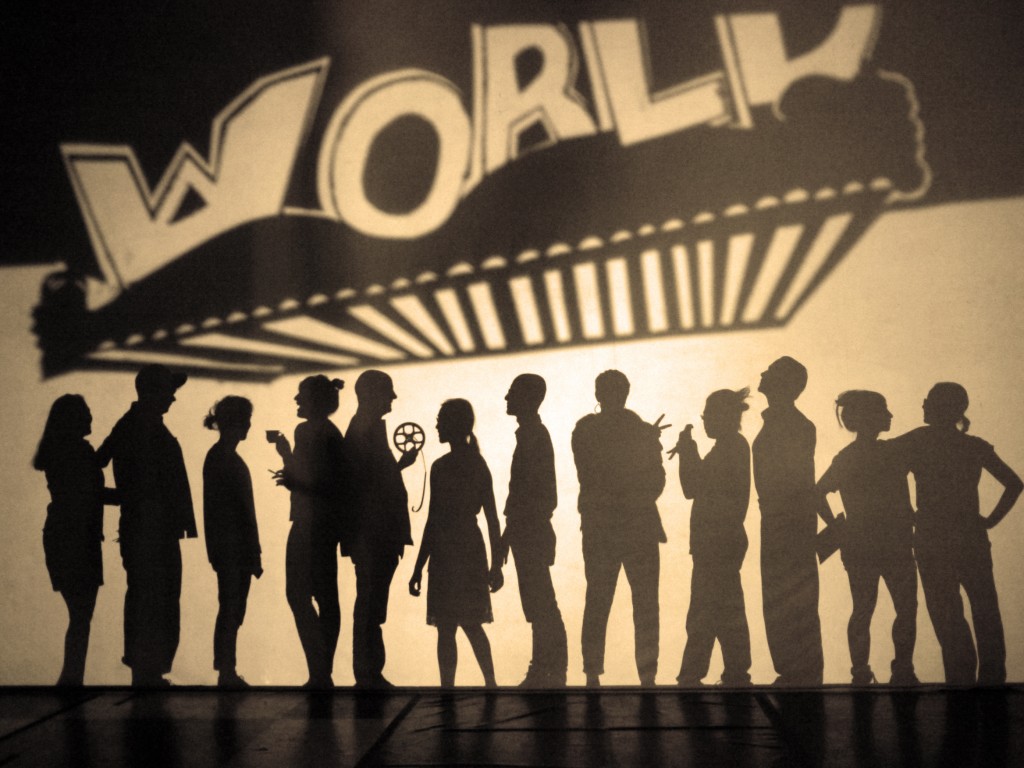
Cast & Crew for FINDING KUKAN Shadow Scenes
The fall brought another major gift – being accepted as one of the four documentary fellows at the NALIP ARC Female Filmmaker Residency in North Troy, VT. Besides getting to see the fall colors and gorgeous VT landscape, I was able to workshop an early rough cut draft of Finding KUKAN with a group of super talented and supportive female filmmakers of diverse backgrounds. Their feedback and encouragement continues to inspire me to take this film to a new level.
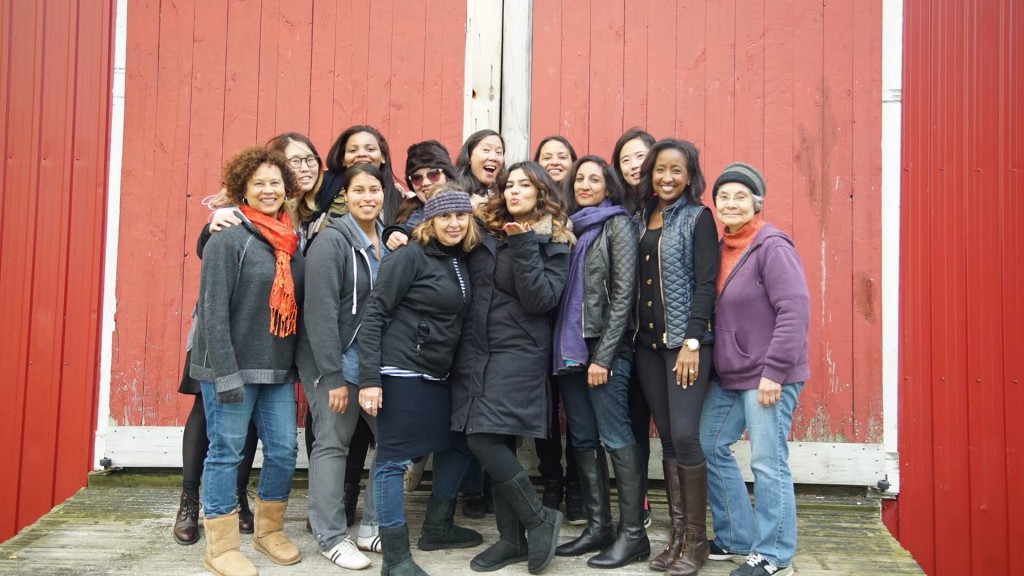
2015 NALIP ARC Residency Participants (photo by Adele Pham)
Thanks to the support of hundreds of people, we are on track to premiere Finding KUKAN in 2016 to celebrate two major anniversaries – the 75th anniversary of the bombing of Pearl Harbor, and the 75th anniversary of the Academy Award documentary category. Much work on the film still needs to be done: music composition, visual effects, sound design, color correcting, and licensing our archival elements. But we are taking a little holiday break to celebrate a very rewarding year and toast to the many adventures ahead.
December 15, 2015 — Year in Review (Part 1 — Back to China & NEA Award)
I’m wrapping up 2015 by posting our mid-year newsletter first: I was thrilled to return to Chongqing this past April with FINDING KUKAN’s producer/editor Shirley Thompson and our translator/advisor Daxing Zhang to complete an historic transfer of KUKAN to China 74 years after it was first released in America.
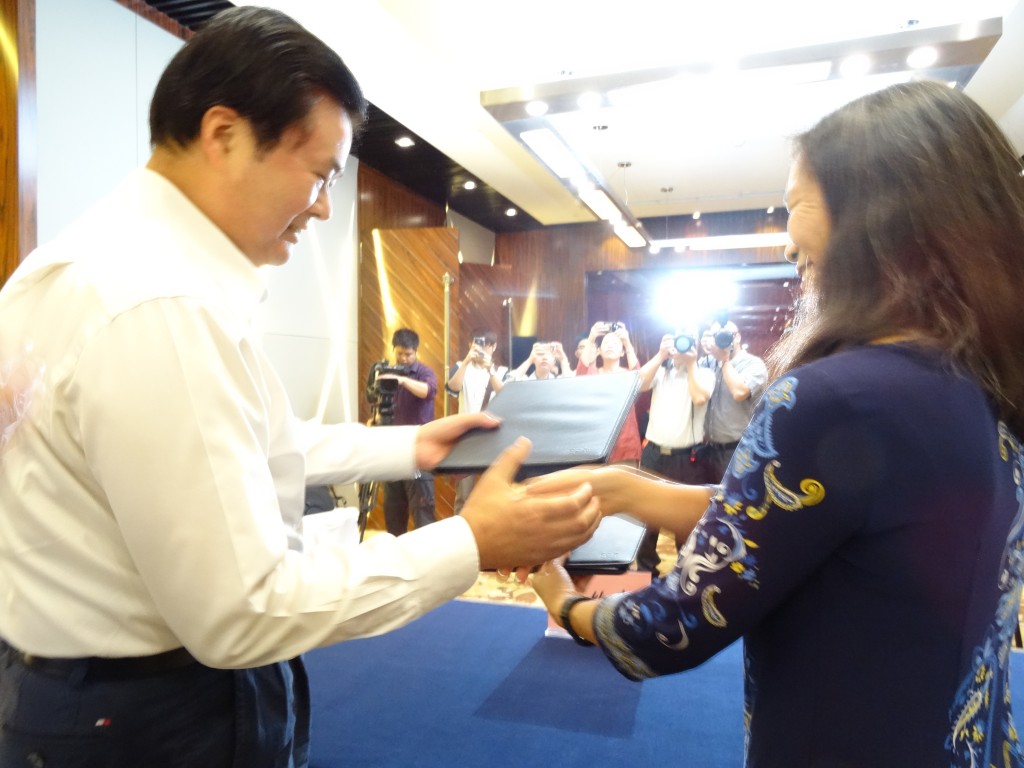
Zhou Yong and Robin Lung complete historic transfer of KUKAN to China.
After my July 2014 trip to Chongqing, Professor Zhou Yong, head of The Chongqing Research Center for the War of Resistance, immediately recognized the great historic value of KUKAN. He began working with us to acquire a copy of the film, and after 9 months of detailed email exchanges back and forth, we finally succeeded in reaching an agreement. The transfer helps bring a big part of missing history to China by making it possible for people all over China to watch KUKAN for the first time and to study it and write about it for many years to come. In Chongqing and Beijing, we watched KUKAN bring tears to people’s eyes as they viewed it. It was a moving testament to the power of film, and I have to thank our many supporters for that experience. Click HERE for more photos from our trip.
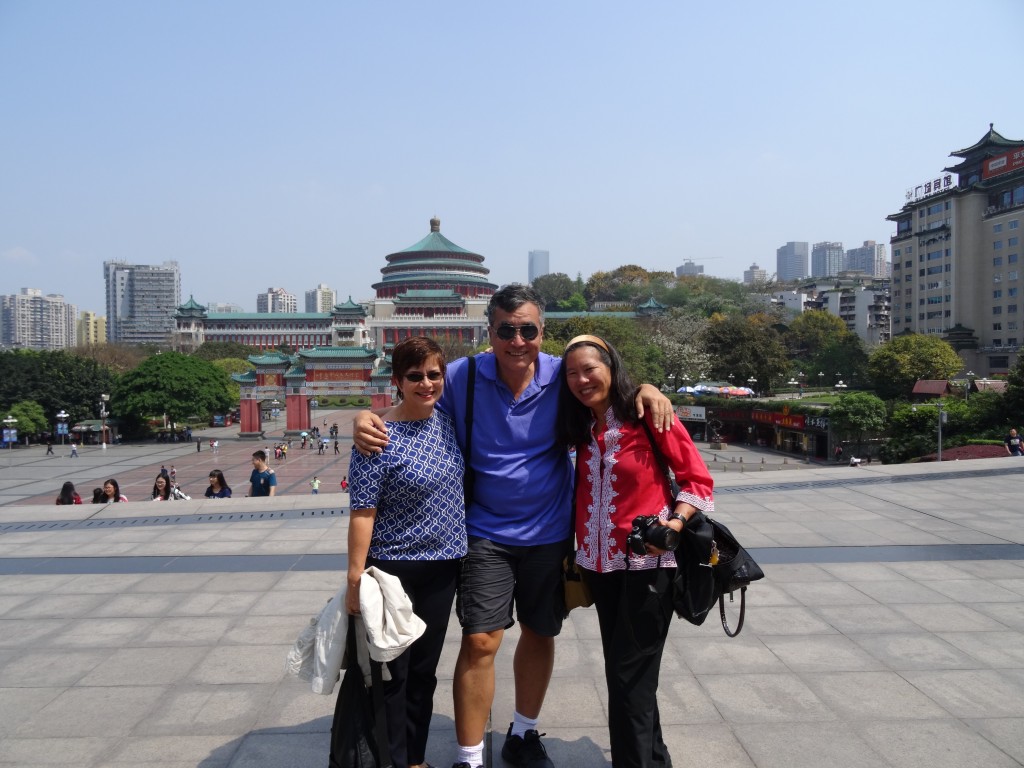
Shirley Thompson, Daxing Zhang, and Robin Lung
While in China we received news that the National Endowment for the Arts awarded FINDING KUKAN with a Media Arts grant. We are very proud to receive this honor which places us in the same group as hallowed institutions like Lincoln Center and The Met. The award meant that we could finally produce and film the historical montages we’ve been planning with our creative partners ShadowLight Productions and Chris Do of Blind design studio. Check Part 2 of our 2015 wrap up for a report on our July adventure into shadowland.
December 2, 2014 — Year in Review (Part 3 — July FIRST TRIP TO CHINA!)
After four months, I’m still trying to digest all the new experiences and things I learned on my first trip to China in July – a study tour focused on World War II history. Currently the average high school world history class in the United States spends less than 15 minutes a year teaching about World War II in Asia. Back in my day, it was even less than that. So this trip was a real eye-opener even though I’d been studying up on the subject for the past few years. A fellowship from the New Jersey chapter of The Alliance for Learning and Preserving the History of World War II in Asia (ALPHA) and a generous donation from Douglas Ho and the Beatrice M.H. Young Foundation made my whole trip possible. I’m grateful to them and all my traveling companions who enhanced my experience.
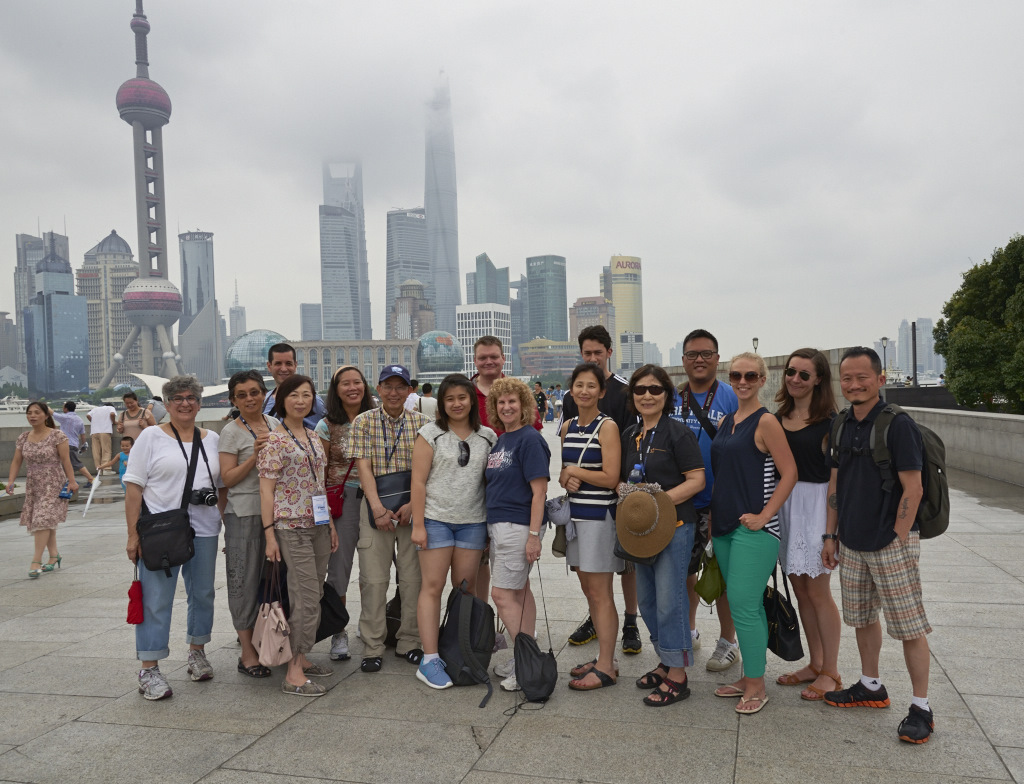
2014 ALPHA Study Tour group on the Shanghai Bund
(photo by Louis Au)
Toronto ALPHA organizes the study tour to help high school teachers create curriculum material currently missing from classrooms. Although we did pause for photo-ops and many great Chinese and Korean meals, much of the tour was spent in study and reflection on serious topics, and once-in-a-lifetime meetings with survivors of the war.
Shanghai was our first stop and a good preparation for what was to come, shattering many pre-conceived notions that I had about China and mainland Chinese people. First of all, I was not interrogated by immigration or strip searched by customs officials or “shanghai’ed” by the taxi driver. In fact, as the taxi took me to our hotel from the Pudong Airport late Friday night, Shanghai seemed disappointingly western. The miles of tall apartment buildings leading into the central part of the city reminded me of the suburbs surrounding NYC. The billboards advertised western luxury brand goods and featured Hollywood movie stars like George Clooney. As soon as we neared the center of the city we also hit NYC-style traffic.
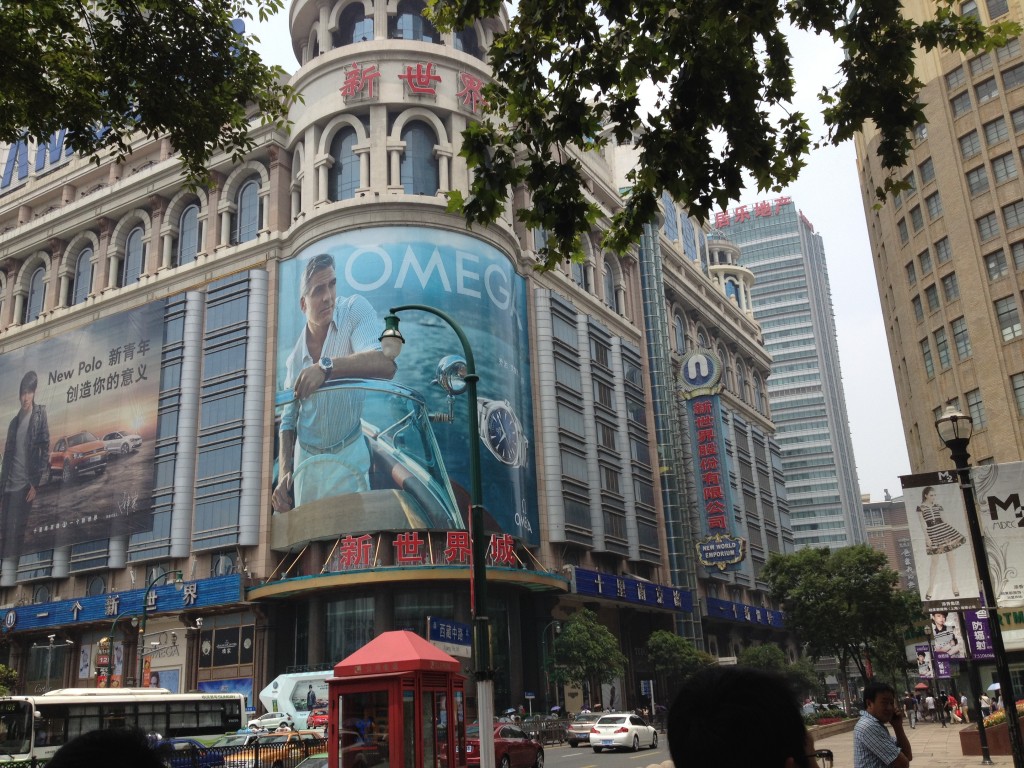
Shanghai is a vibrant mixture of old and new, east and west
Since I’m a lazy blogger with a poor memory, I refer you to fellow traveler Don Tow’s excellent wrap-up of our trip and my roommate Debra Maller’s day by day blog to get a better idea of all the sites we visited and people we spoke to.
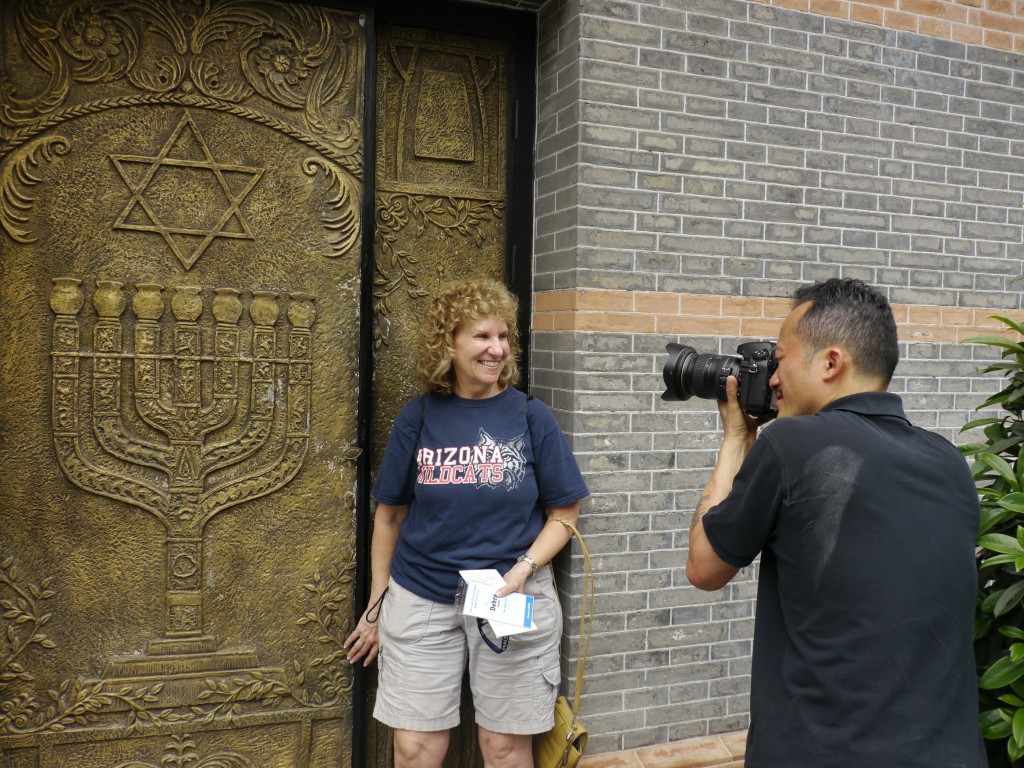
My study tour roommate Debra Maller with our tour documenter Louis Au outside the Shanghai Jewish Refugee museum. Proud that the Chinese took in Jews during WWII when other countries turned them away.
For me, learning of the abuses of women during the war was particularly emotional. The reality of the situation hit home for me when we visited a former “comfort station” in Shanghai, the former residence of the Chen’s, a wealthy family who fled Shanghai when the Japanese military invaded the city in 1937.
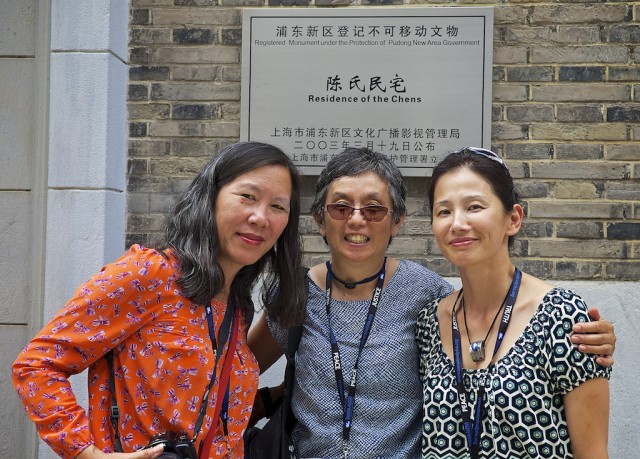
Outside Shanghai “comfort woman” house with Betty Ma and tour organizer Judy Cho (photo by Louis Au)
The Japanese military took over the house to use as a brothel for their troops and forced women that they kidnapped to live there and provide sex to the men. About 40 women were kept in the house during the war. It was a powerful emotional experience to be in the actual location where these women were imprisoned and abused. The place felt haunted. I could sense the helplessness of the women who were forced to service the men and the despair they must have lived with.

Courtyard of Shanghai “comfort women” house
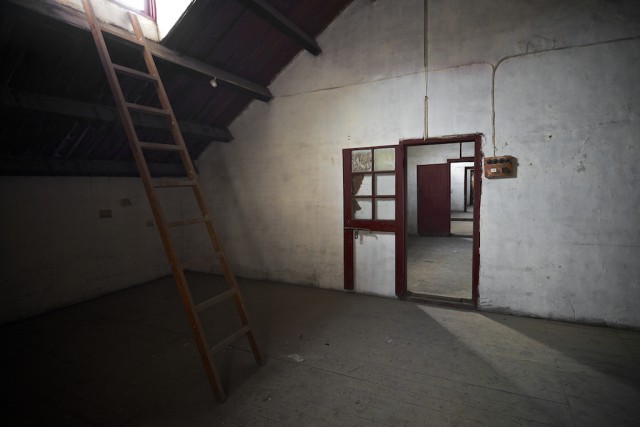
Second floor room of Shanghai “comfort women” house (photo by Louis Au)
The fact is that sexual slavery and the abuse of women still goes on all over the world. How can we stop it? On the last leg of our trip I was heartened to meet the Korean grandmas in Seoul, surviving “comfort women” who had become activists to help other women suffering sexual abuse. Their ability to survive to find enjoyment and purpose in life made me realize that humanity is also capable of great good. Their activism and commitment to sharing very painful personal stories so others might not have to suffer was deeply inspirational.
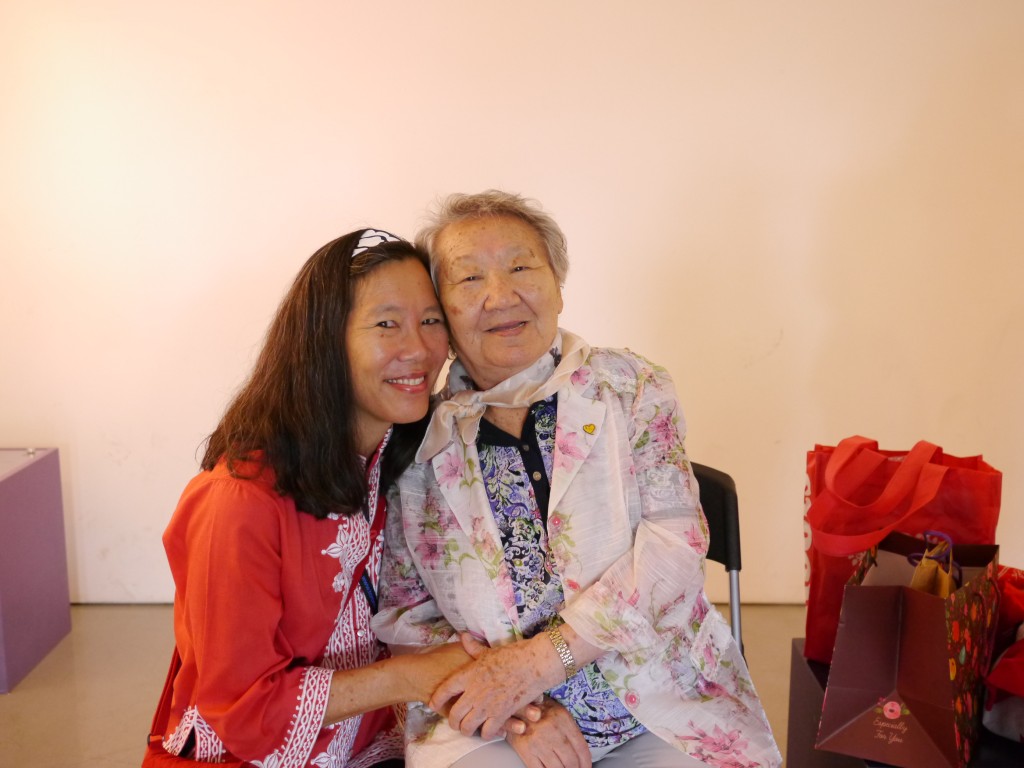
Grandma Gil, one of the Korean “comfort women” we met at the War and Women’s Human Rights Museum in Seoul
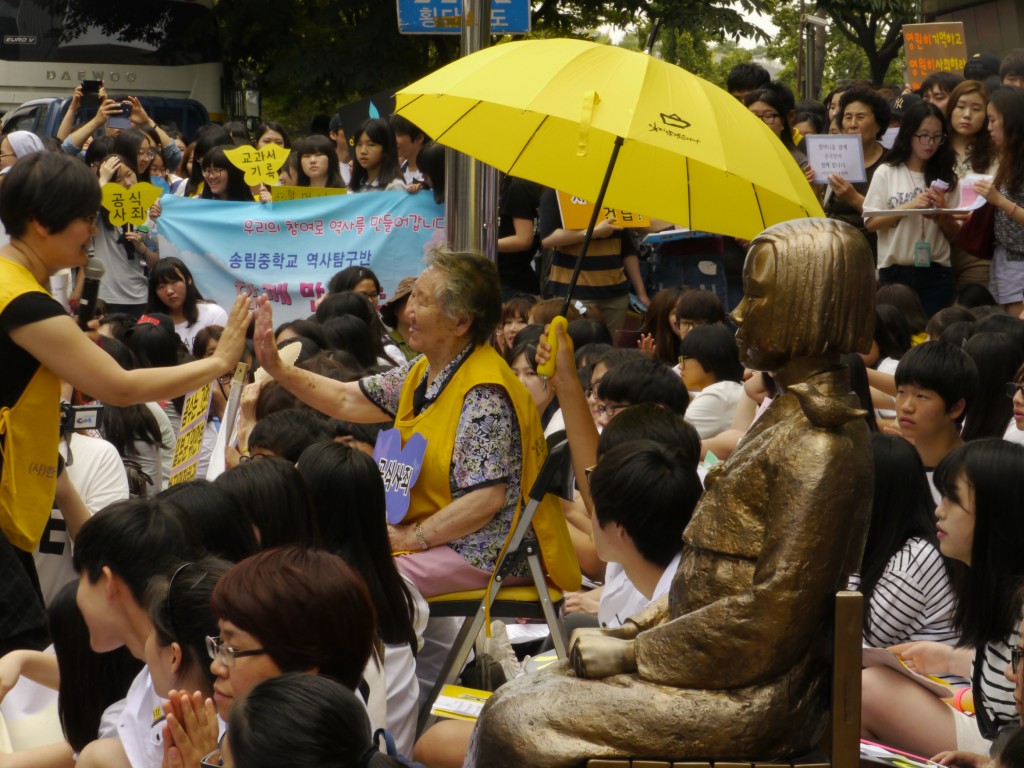
86 year old Grandma Gil continues to advocate for women in weekly demonstrations in Seoul. She was forced into sexual slavery at 13 years old.
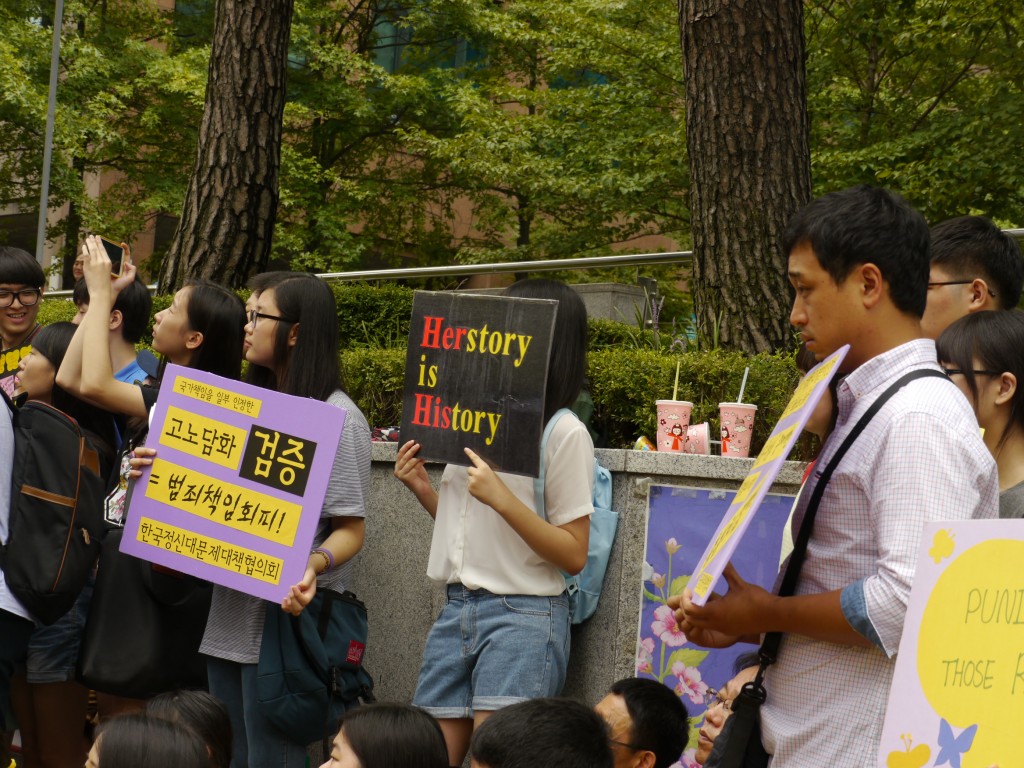
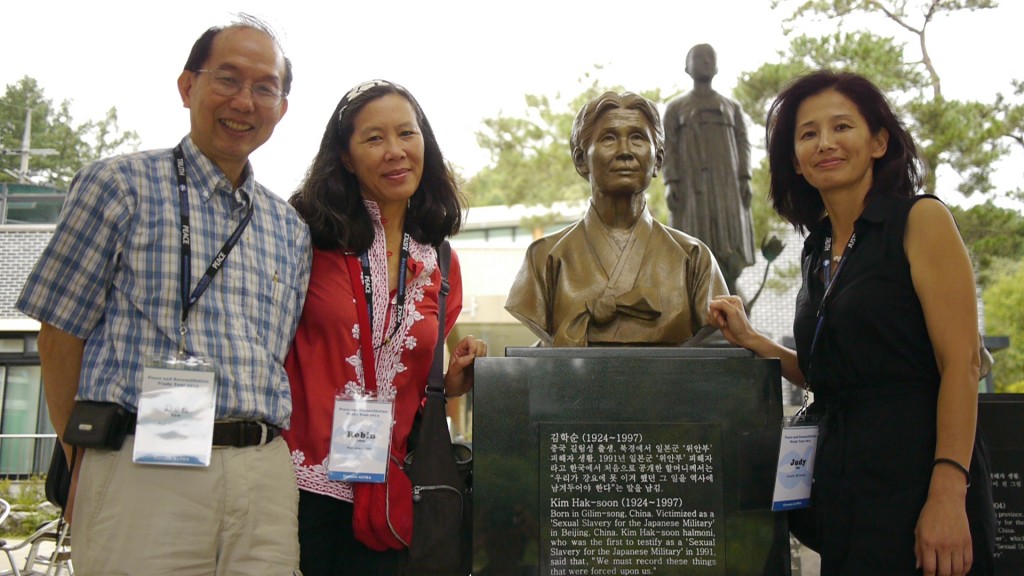
Don Tow, Robin Lung, and Judy Cho at memorial to Kim Hak-Soon, the first woman to publicly testify to being a sexual slave to the Japanese military during World War II
Many of the World War II atrocities we learned about on the tour are compilations of personal histories that have almost been lost and are only now being able to be told due to the diligent work of individual scholars or brave individuals who have gone public with their stories despite the public shame or government disapproval that has come with it. As our learning sessions continued, I began to see that every country and every generation within each country has a different way of remembering history and using history to forge a path to the future. There are also forces in every country that cause large chunks of history to be suppressed or forgotten. America is no exception. How much of our own history has been lost or forgotten? And why?
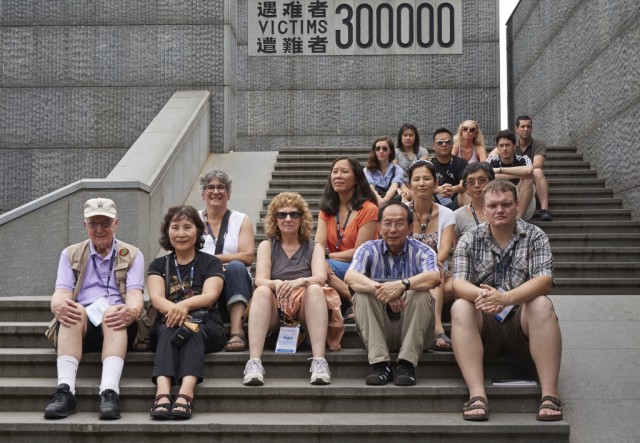
Our group after touring the Nanjing Massacre Memorial Hall
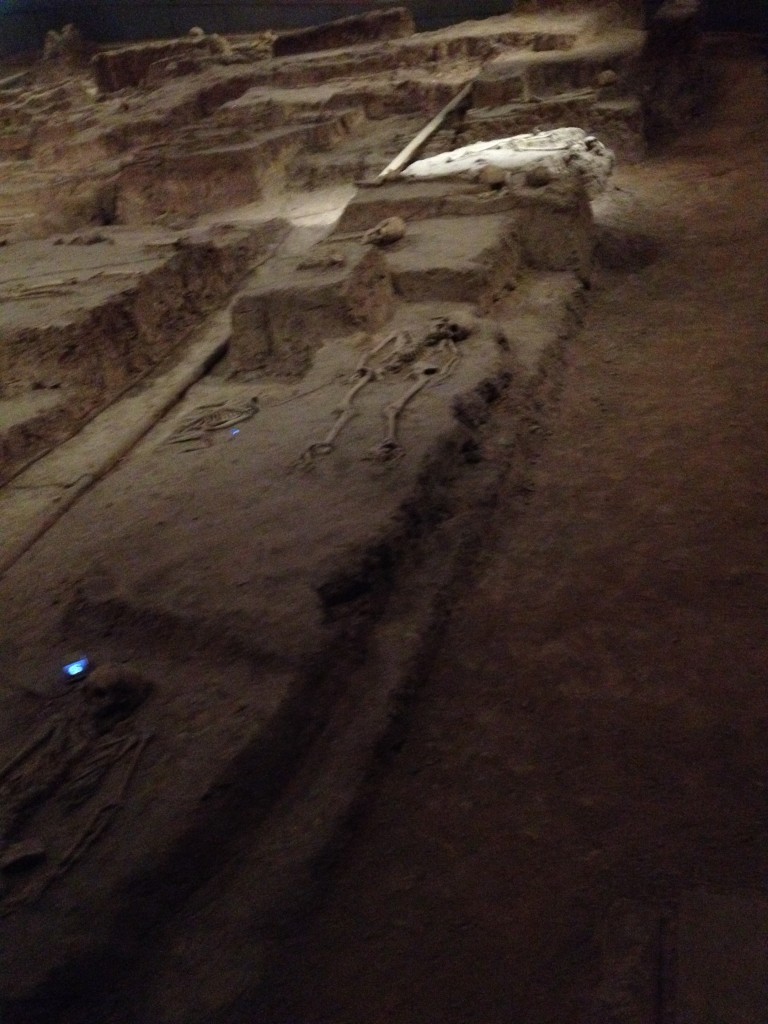
The Nanjing Massacre Memorial Hall is built near the site of a mass grave of 10,000 victims and displays some of the remains excavated near the site. A gruesome reminder of the horrors of war.
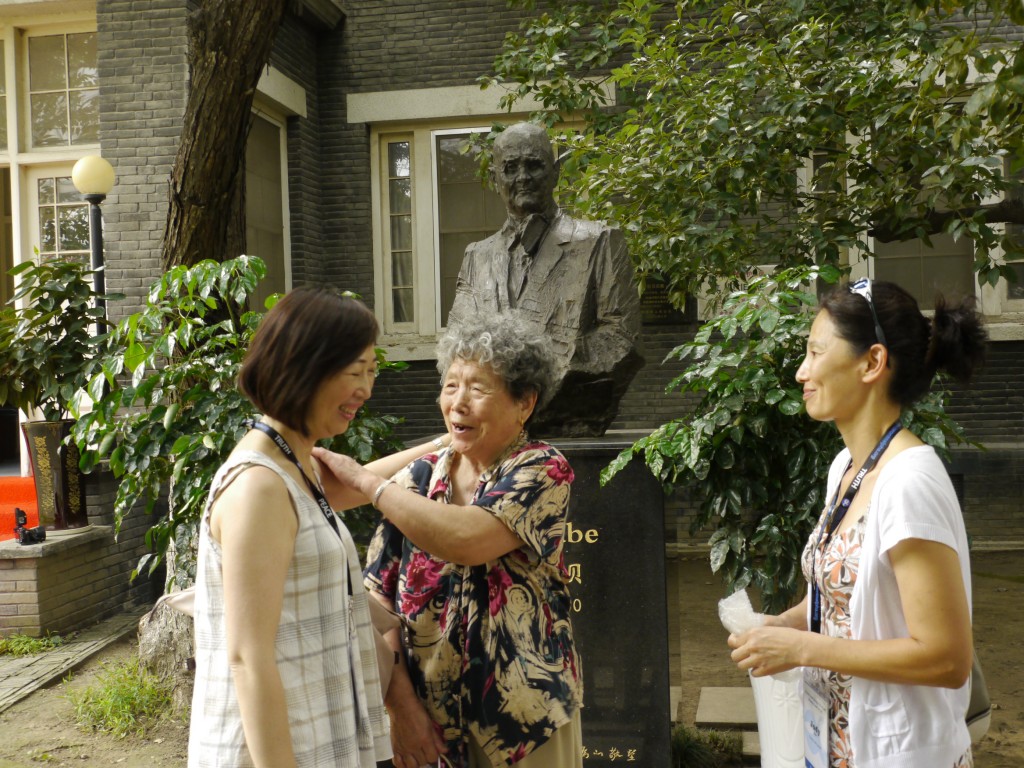
At the John Rabe House study tour leader FLora Chong and Judy Cho greet Nanjing Massacre survivor Ding Zheng Lan who was sheltered in the Safety Zone created by Rabe and several other westerners who remained in Nanjing during the massacre in 1937.
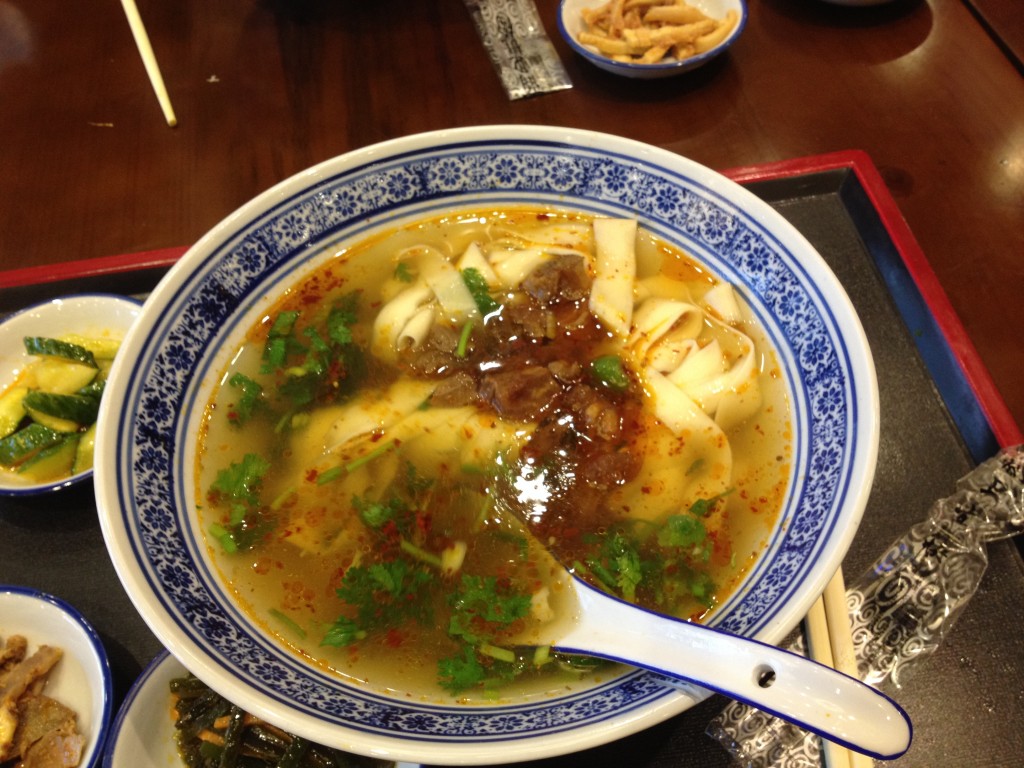
Nothing like restorative noodle soup after studying about wartime massacres. One of my favorite China meals was at the Nanjing airport.
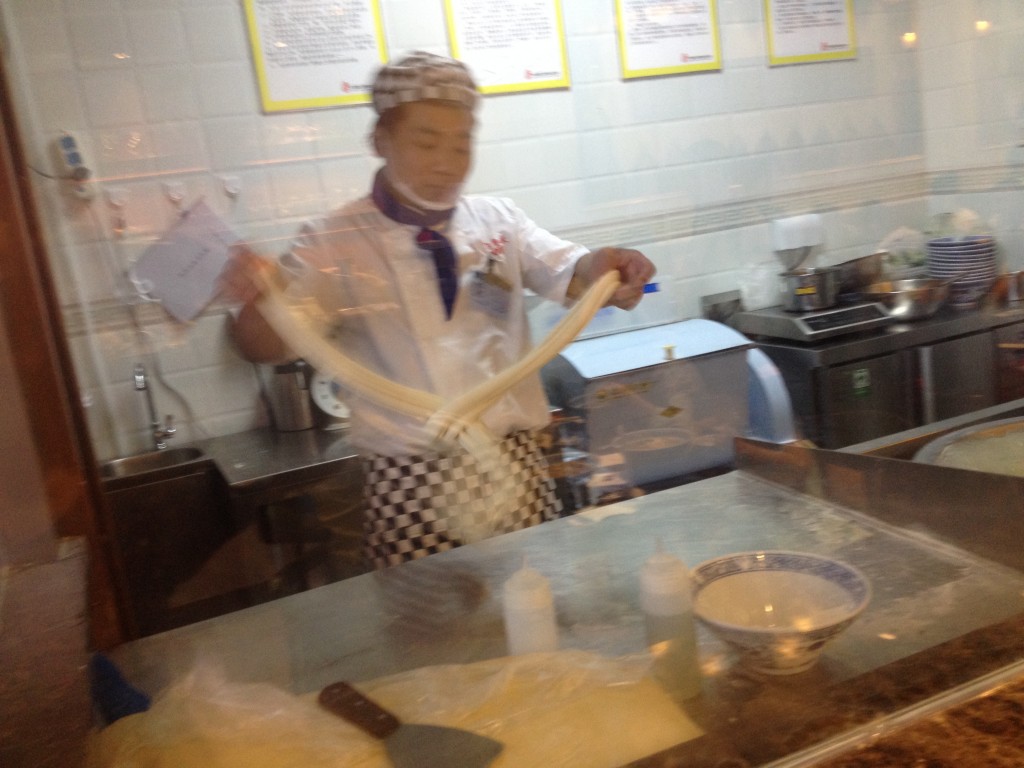
Why would you eat at the airport McDonalds when this is available?
The highlight of my trip came after the official study tour was over and I traveled to Chongqing, the wartime capital of China where much of KUKAN was filmed. I was able to stand at the very place that Rey Scott filmed scenes of the bombing of Chongqing that made KUKAN famous.
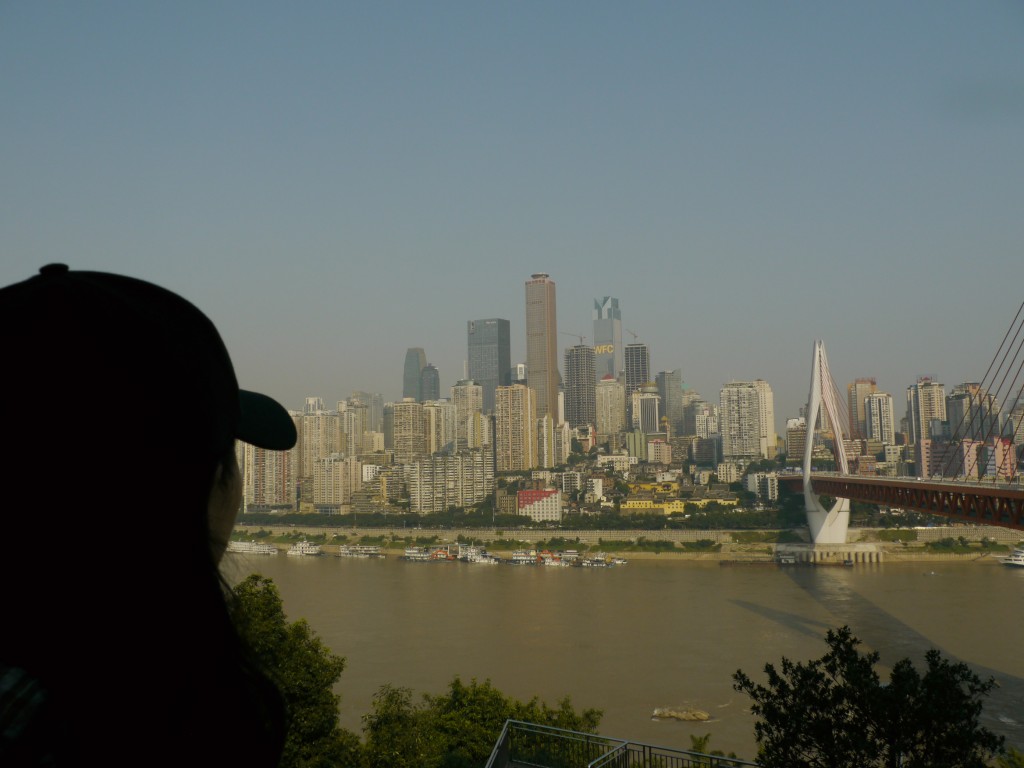
View of Chongqing from the south bank of the Yangtze
I also screened KUKAN for a group of about 30 historians in Chongqing.They were clearly moved by the scenes of their city being decimated by the Japanese bombs. They had never heard of KUKAN before even though many of them had spent their academic careers studying the war. The film represented the most complete record of the bombing of Chongqing that they had ever seen and contained a treasure trove of images from all the locations in China where Rey Scott filmed.They applauded Li Ling-Ai and Rey Scott’s heroic effort in making the film and my effort to bring it to their attention. As a struggling filmmaker, knowing that a piece of work can have an impact beyond one’s lifetime helps keep me motivated when the chips are down. I hope to have more news about a return trip to China soon.
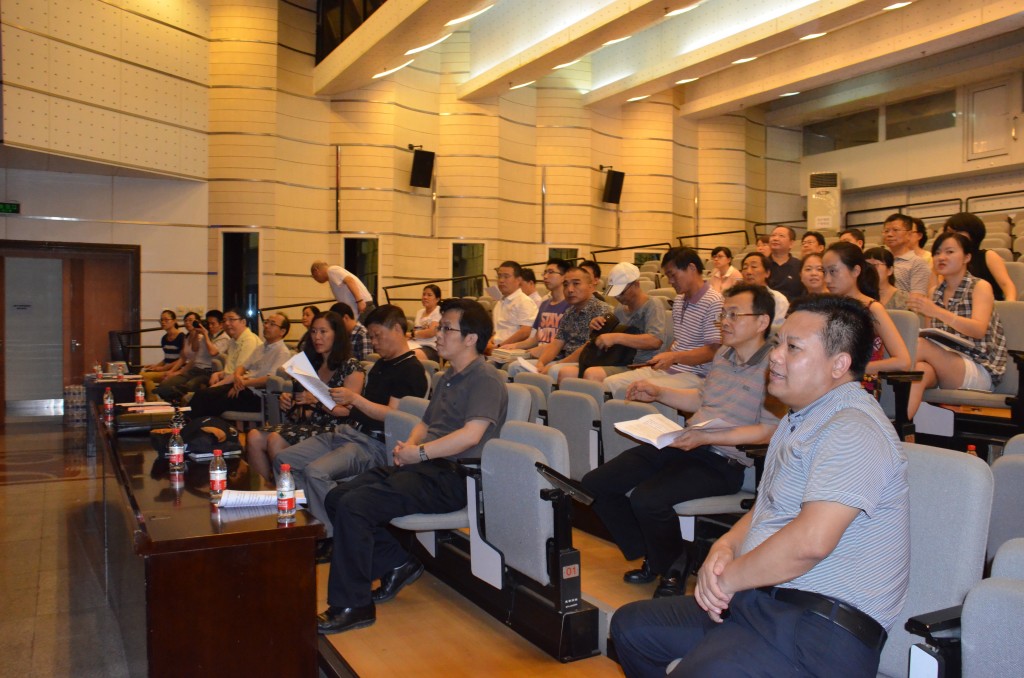
Scholars in Chongqing view the 1941 KUKAN — screened in China for the first time.
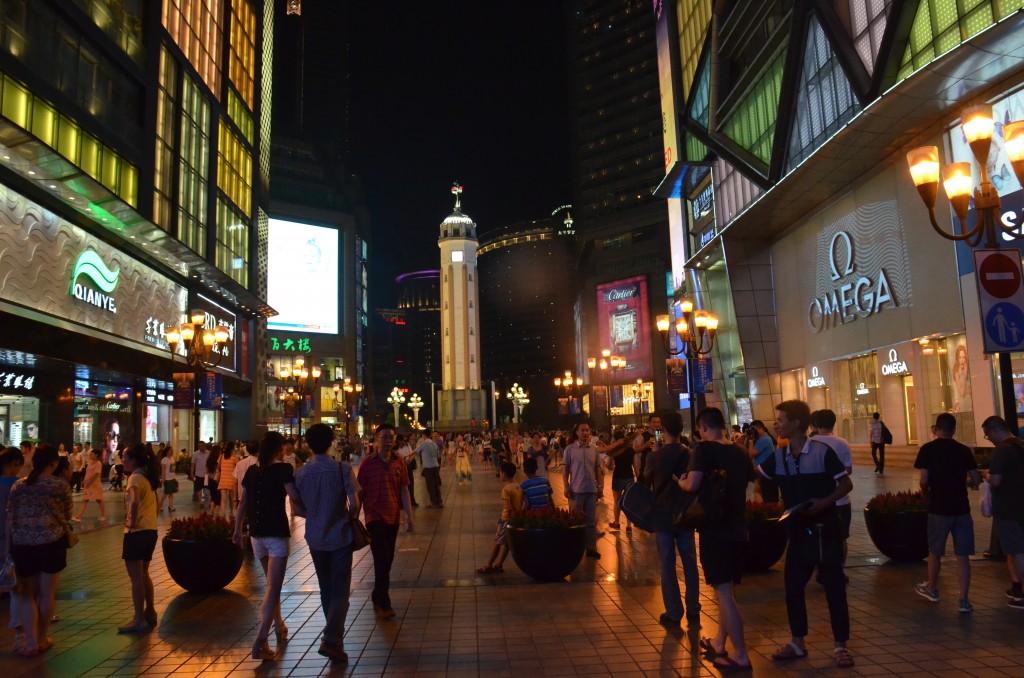
Chongqing’s central shopping square is anchored by the People’s Liberation Monument, built in 1945 to commemorate the victory over the Japanese in WWII. It was renamed in 1950 to commemorate the Communist conquest of the area. Even monuments change to fit the popular mood of the times.
October 8, 2013 — Oscar History Giveaways
I’m so thrilled to announce that with one week to go in our “10K in 10wks Keep This Film Alive” campaign, we’ve raised 85% of our goal — $8,515 raised with $1,485 to go. The funds will allow us to start editing a rough cut of the film on November 12! To celebrate, we are going to give away TWO FINDING KUKAN SOUVENIRS – a large canvas tote bag featuring an image of Li Ling-Ai (the un-credited producer of KUKAN); and a 18”X24” replica of the original KUKAN poster, suitable for framing.

FINDING KUKAN Souvenir Canvas Tote Bag
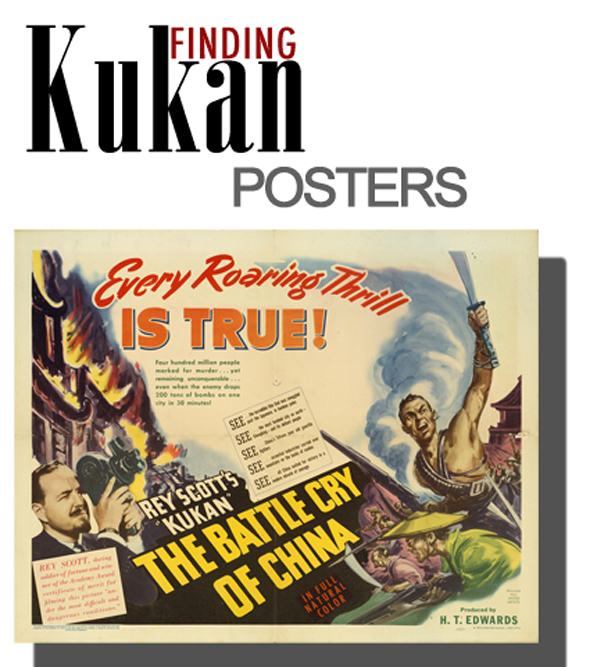
18″ X 24″ KUKAN Souvenir Poster
To enter the drawing for these Oscar history collectibles simply “LIKE” our page on Facebook HERE. If you are already a Facebook fan, you can enter by sharing any post on our Facebook Page that is titled “SHARE THIS”. If you are not a Facebook person, you can enter the drawing by sharing this link in a blog post or email to a friend (make sure to copy info[at]findingkukan[dot]com). We will pick the lucky two winners on November 12, our first day of editing.
This story is empowered by the people who share it. My heartfelt thanks to all of you for helping to keep this story alive. Aloha, Robin
p.s. you can still make a tax deductible contribution to our 10k goal by clicking HERE.
October 2010 — Mayor’s Office Awards Grant
Finding KUKAN receives a grant from the Honolulu Mayor’s Office of Culture and the Arts to produce a fundraising and outreach trailer for the film!



